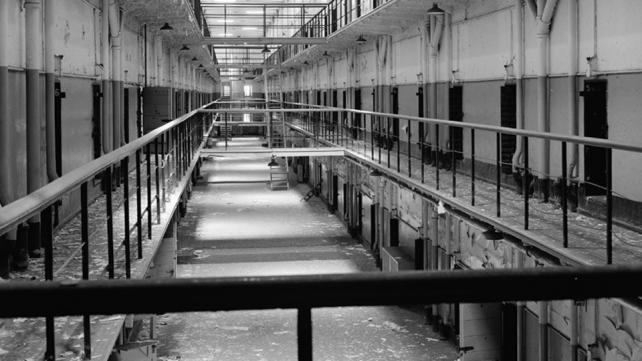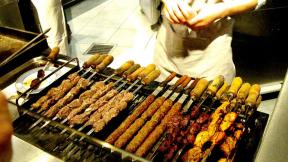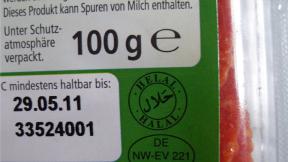
For many of the 350,000 to 400,000 Muslim prisoners in the United States,
Zabiha meat is a dream, according to Jan Muhammad Diwan. Most of them became Muslims while in the prisons.
Yet, “it's the right of Muslim inmates to have Zabiha meat,” says the 74-year-old president of the California Muslim Prisoners' Foundation.
This right is particularly signficant as more and more prisoners in the U.S. accept Islam.This has happened after being invited to the Deen by Muslim chaplains and volunteers who regularly visit the prisons.
But Muslim prisoners' lack of access to Zabiha meat is about to change.
By the end of August 1999, prisons across the United States will be able to provide Zabiha meat, that is meat slaughtered in accordance with Islamic guidelines, through prison commissaries, thank to efforts by Diwan and the California Muslim Prisoners' Foundation who have been working with prison officials to provide the meat.
There are two ways inmates obtain food in the U.S. The first is through prison dining halls, where their three daily meals are served.
The second is through commissaries. These supply food and other items which are purchased by inmates. For Muslim inmates, this means they can buy prayer rugs, for instance.
Commissaries sell food to prisoners who purchase the food with money they had before incarceration, or with that which they have earned in prison. Prisoners across the U.S. earn $0.35 an hour for labor they undertake while incarcerated.
Diwan explained that the United States Department of Agriculture-certified Zabiha meat will be packed in cans. He also said he is still in negotiation with a few Zabiha meat suppliers in California.
Diwan explains that part of the delay for being able to provide Zabiha meat and food products was because there were few Muslim food manufacturers who were providing food with packaging appropriate for the prison population.
Prisoners are not allowed instruments like can openers in prison for security reasons. “No prison will allow it in the U.S.,” explains Diwan.
This is why food sold through commissaries must be in packaging that is easy to open without the use of forbidden instruments. The Zabiha meat will be packaged in cans that are opened like soft drink cans.
Diwan explains the next step is publicizing the availability of Zabiha meat for Muslim inmates amongst head chaplains and Muslim chaplains in prisons across the U.S.
If a prison asks for a supply, Diwan explained the Foundation will be responsible for sending them the meat.
Diwan established the California Muslim Prisoners' Foundation in 1995. The foundation arranges for seminars, provides Islamic literature and post-prison release programs for Muslim inmates. Last year the group sent two former inmates to Hajj.
Photo Attribution: http://commons.wikimedia.org/wiki/File:NORTH_CELL_BLOCK_-_Philadelphia_County_Prison,_Tenth_Street,_Philadelphia,_Philadelphia_County,_PA_HABS_PA,51-PHILA,672-8.tif








Add new comment